 Loading... Please wait...
Loading... Please wait...-
Products
- Piezometers
- Inclinometers
- Strain Gauges
- Data Loggers
- Time Domain Reflectometry (TDR)
- Displacement Transducers
- Extensometers
- Settlement Sensors
- Pressure Cells
- Load Cells
- Tiltmeters · Pendulums
- Readouts
- Visualization Software
- Stressmeters
- Distributed Fiber Optic Sensors
- Temperature
- Instrumentation Cables
- DeAerators
- Vibration Monitoring
- Custom Instrumentation
- Discontinued
- Support
- Training
- Contact Us
- News
- Company
- Projects
- Resources
- Videos
- Links
Projects
Piles
-
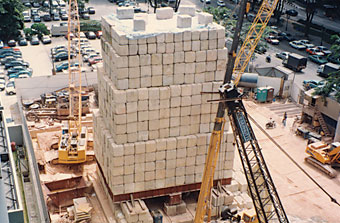
Overview
GEOKON is a leader in pile testing instrumentation — both steel and concrete, driven or cast-in-place. Many important projects utilizing coffer dams and sheet piling have been instrumented, plus pilings on foundations of major buildings in cities throughout the world. The Petronas Twin Towers in Malaysia, among the tallest buildings in the world, uses GEOKON gauges.
Learn more about our pile testing instrumentation.
Case Histories
-
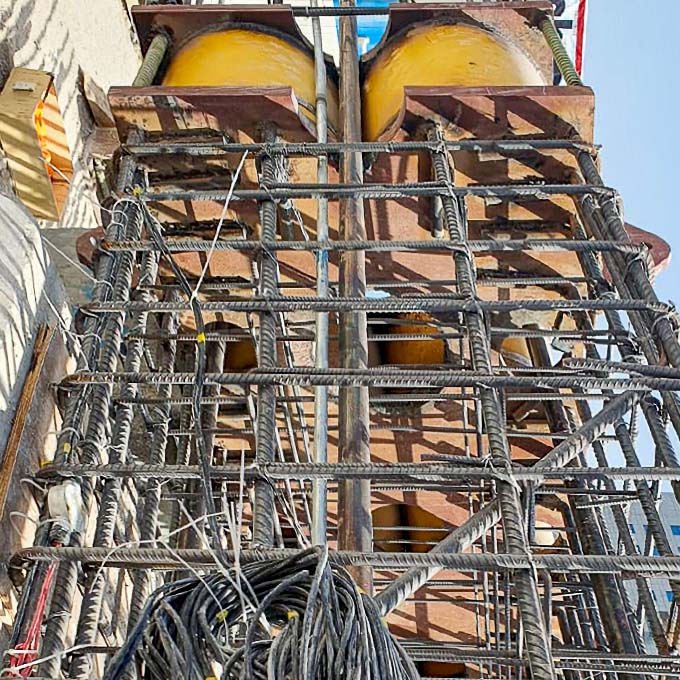
18,000 Ton Static Load Test, on Barret Pile
Dubai, UAE
Strainstall Middle East (SME-Testing) carried out a static load test to an impressive 18,000t, on a barrette pile of dimensions 2.80m x 1.20m, at the proposed La Maison Residential Tower, Dubai, UAE.
This test demonstrates the application of Bi-Directional Static Load Test (BDSLT), incorporating 8 levels of GEOKON Model 4200 Embedment Strain Gauges. The strain gauge data is used to record the load distribution and resistance parameters, and thereby verifying the initial foundation design.
For additional information, please contact:
-
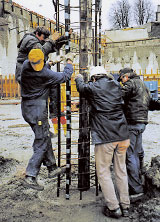
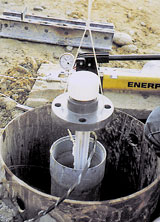
Millennium Tower
Vienna, Austria
The Millennium Tower, at 202 m, is one of the tallest buildings in Europe. The structure is constructed on a preloaded piled raft foundation. The soil at the site was improved by vibrocompaction and the excavation was contained within a tieback diaphragm wall (12 dewatering wells lowered the high groundwater level from the adjacent Danube river).
The ground movements due to excavation, pumping and subsequent loading by the rising building were measured by an Extensometer installed close to vertical axis of the tower. The extensometer was fitted with 5 vibrating wire Displacement Transducers and connected to a Micro-10 Datalogger. The Extensometer Anchors were located at different levels between 26 m and 60 m depth.
A flatjack was inserted at the interface between each bored pile and the raft, and preloading was carried out using the raft and the weight of two sub-floors. The hydraulic pressure at 11 flatjacks was measured automatically during the loading cycles with vibrating wire Pressure Transducers and the Micro-10 datalogger.
Additionally, a central bored pile, located close to the extensometer, was instrumented with 12 vibrating wire Rebar Strain Meters, distributed in four arrays at approximately 2 m, 5 m, 8 m and 12 m depth, and connected to the datalogger to automatically determine the deformation of the pile at different levels with the preloading.
For additional information, please contact: Carlos Fischer | Scanrock, GmbH
-
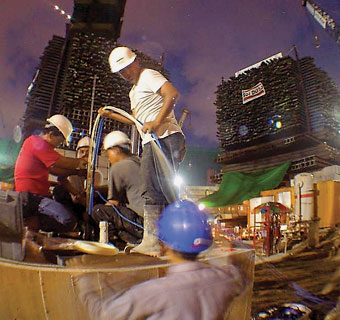
4000 Ton Load Test
Hong Kong
Trial barrettes (varying in depth from 60 m to 80 m) installed for the foundation works, for what was to be next tallest building in Asia, were instrumented with Sister Bars, Rod Extensometers and Retrievable Extensometers. The Retrievable Extensometers (2 in each barrette) were installed from 33 m to the toe depth of each barrette. The Retrievable Extensometers for the first 3 barrettes were installed using a crane, but as the site became more congested it was decided to assemble and install the extensometer over the hole - the latter method of installation taking close to 3 hours. The maximum load for all the tests was 4000 tons. Some tests were run for 6 cycles over a 10-day period. The data from the instruments were presented on Sol Data’s SMACS database, which gives a 3 dimensional view of the barrettes and the gauge locations, allowing a clear picture of the test and the pile behavior. The test results could also viewed remotely via a modem connection.
For additional information, please contact: Raymond Liu | Sol Data (Asia) Ltd.
-
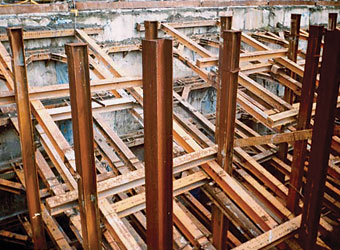
Dihwa Water Recycling Plant
Taipei, Taiwan
The Dihwa Water Recycling Plant, occupying 76,000 m², is one of the largest water Recycling Plant in Northern Taiwan. Completed in October 2003, the plant has the capacity to recycle 500,000 m³ of water per day. The construction, which started in January of 1999, required more than 1,450 foundation piles and included Rebar Strain Meters, Strain Gauges, Piezometers, Displacement Transducers and Loads Cells.
For additional information, please contact:
-
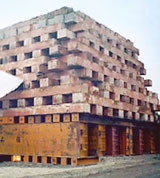
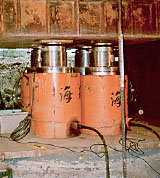
Pile Test Project
Taiwan High Speed Rail
The Taiwan High Speed Rail is the main mode of mass transportation in Taiwan. The pile testing program prior to construction required Strain Gauges and Load Cells, which were used to measure up to 4,200 ton loads.
For additional information, please contact:
Share your Project!
GEOKON would like to share customer projects and success stories with the visitors of our website. If you would like your project summary to be featured on our Recent Projects page, added to our collection of various Projects and promoted on social media, please complete and submit your project for review and consideration. As a token of our appreciation, GEOKON will send you a small gift for your contribution!
